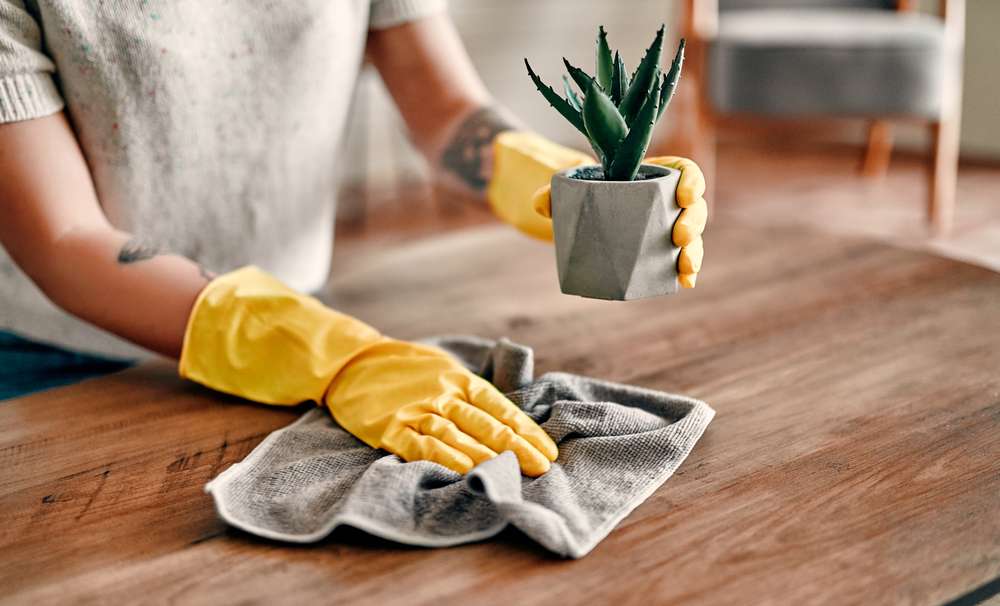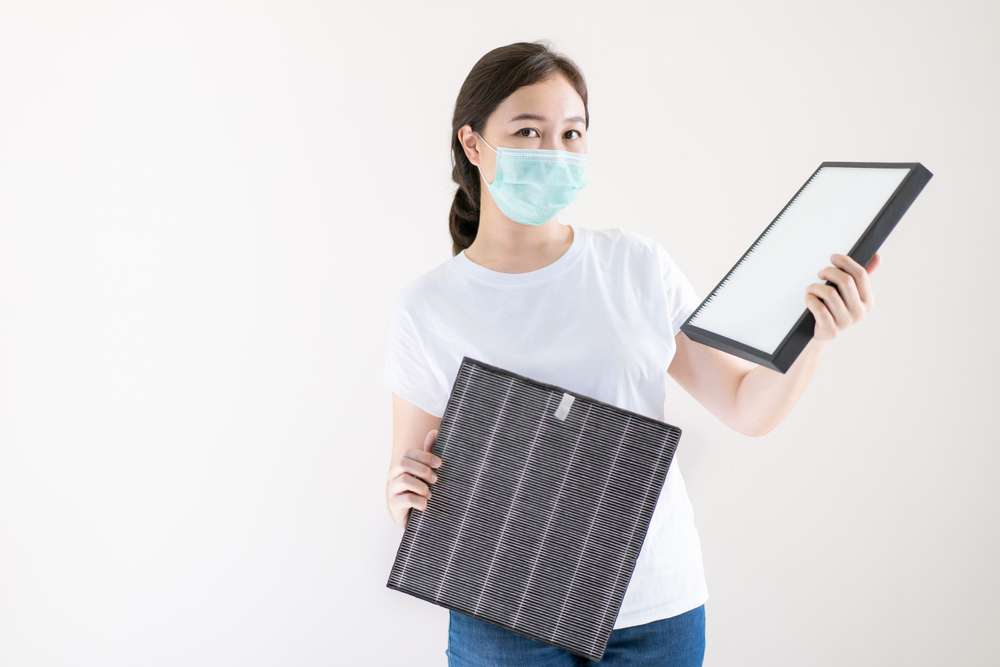Air purifiers remove lots of pollutants from the air, such as dander, pollen, and some even help remove gases. But what about dust, that particle that just never seems to go away? Do air purifiers remove dust?
Yes, air purifiers remove dust, although only if the dust is in the air. If it has settled on something then you’ll have to clean it. By combining the work of an air purifier with your own, you can create a better home experience for yourself and those who use that space.
Why Is Getting Rid Of Dust Important?

Dust is a problem no matter where you find it, but especially if it’s in your home. Just when we think we’ve cleaned it all out, it’s time for another round of dusting. That’s not to mention the allergies it can cause.
Dust is more than just a disturbance or something that makes us sneeze though. It can and often does bring in a bad little pest called dust mites. Dust mites feed on the dead human skin cells that end up as dust. Dust mites don’t cause allergic reactions, but their droppings and decaying body parts do.
If you have asthma or a severe reaction to dust mites, it’s particularly important to do your best to reduce or eliminate them from your home.
What Air Purifiers Remove Dust?
Air purifiers can have one or more filters that they use to filter out the pollutants in the air. Out of all these filters and air-purifier types, only a few work to remove dust from the air. The best are the air purifiers that have a High-Efficiency Particulate Air (HEPA) filter. The second “best” (with a big warning) are electrostatic precipitators (ESPs), more on that shortly.
High-Efficiency Particulate Air (HEPA) Filters And Dust

The Short Version
High-Efficiency Particulate Air (HEPA) filters are the highest-rated residential filters. They can remove dust better than any other filter or air-purifying technology, since they easily capture even the smallest dust particles, and they do so safely.
The Long Version
A HEPA filter is a high-efficiency particulate air filter. HEPA filters can remove up to 99.7% of certain particles in the air, such as dust. Dust typically has a size between 0.5 and 100 microns whereas HEPA filters can trap anything as small as 0.3 microns.
A micron is the measurement of the diameter of particles like dust, and it’s one million times smaller than a meter. To measure how effective a filter is at purifying the air, of these micron-sized particles (ranging from 0.3 to 10), they’re rated in Minimum Efficiency Reporting Values or MERV.
According to the U.S. Environmental Protection Agency (EPA), MERV ratings go from 1 to 16. A MERV rating of 16 means a filter can successfully capture particles ranging from 0.3-1.0 microns at a success rate of 75% or higher.
This is where things get interesting. ASHRAE, or the American Society of Heating, Refrigerating, and Air-Conditioning Engineers, created the MERV rating. They used to have a MERV 17-20 rating but dropped those since they don’t have a testing procedure for HEPA filters. ASHRAE does admit that HEPA filters’ efficiency is higher than MERV 16 though.
All of this is to say that HEPA filters are excellent at capturing dust particles of any size, just so long as they’re in the air and not settled on a surface somewhere. For those, you’re going to have to do some old-fashioned dusting.
Recommendations
Electrostatic Precipitators And Dust
In short, electrostatic precipitators or ESPs use an electrostatic field to make air particles, like dust, stick to collecting plates while the air moves on without them. The big problem with these, which make them not really usable in home environments or where people frequent, is that they have the potential to create ozone. Ozone can be harmful to human health, so in this case, just look for an air purifier that has a HEPA filter.
In Summary: Do Air Purifiers Remove Dust?
Air purifiers help remove lots of things from the air, but do air purifiers remove dust? Yes, just so long as you go with one that has a High-Efficiency Particulate Air (HEPA) filter, and you keep in mind that you’ll still need to take care of any dust that has already settled.
HEPA filters can capture any size of dust particle and do so with the highest efficiency. Unlike electrostatic precipitators, which can also capture dust particles, they don’t have any potential to create ozone either. This makes them the best, and really, the only choice for capturing dust.
We’d love to hear about your experiences with air purifiers too. How well do air purifiers remove dust for you? In what ways has that made your life easier? Let us know in the comments below!

